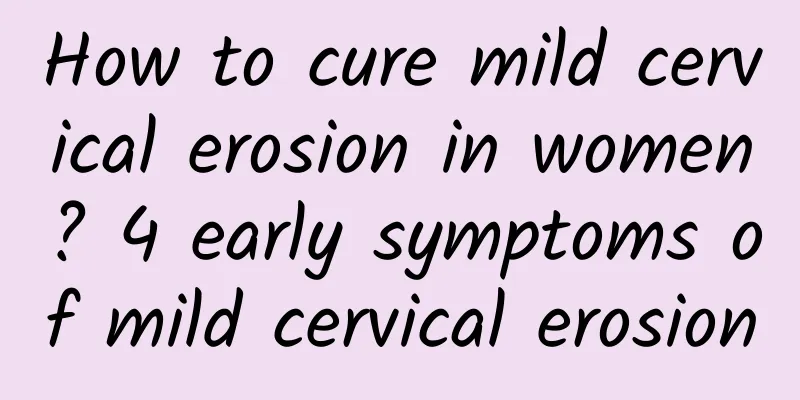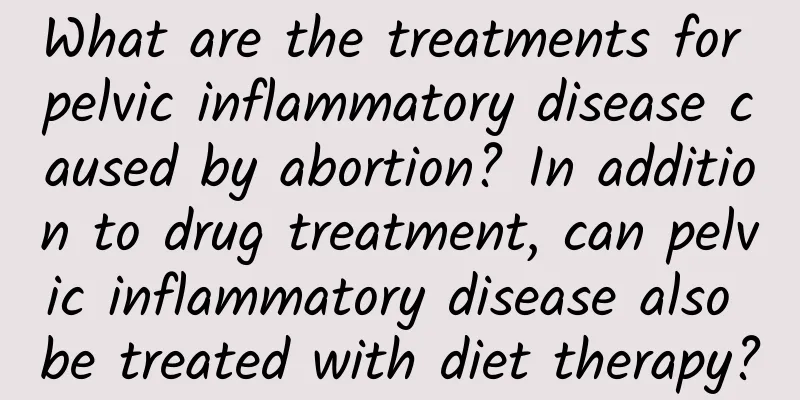Dietary considerations for adenomyosis

|
Adenomyosis is one of the common gynecological diseases. There are many symptoms of adenomyosis. So what are the dietary precautions for adenomyosis? In addition to receiving treatment in the hospital, the diet of patients with adenomyosis in daily life is also very important. Experts say that a reasonable diet can not only relieve symptoms, but also speed up the treatment of the disease. Dietary considerations for adenomyosis: Dietary precautions for adenomyosis! Patients with adenomyosis should not eat sour foods. Acidic foods have astringent and astringent effect, which makes the blood stagnant and is not conducive to the smooth flow and discharge of menstrual blood. Therefore, patients with dysmenorrhea should try to avoid eating such foods during menstruation. Acidic foods include rice vinegar, hot and sour vegetables, kimchi, pomegranate, green plum, bayberry, strawberry, carambola, cherry, sour jujube, mango, apricot, plum, lemon, etc. Dietary precautions for adenomyosis! Patients with adenomyosis should not eat spicy food. Some patients with dysmenorrhea already have heavy menstrual flow. Eating spicy, warm and irritating food will aggravate pelvic congestion and inflammation, or cause excessive contraction of uterine muscles, which will aggravate dysmenorrhea. Therefore, patients with dysmenorrhea should try to eat less or no spicy food such as chili pepper, pepper, garlic, onion, ginger, leek, chicken soup, durian and spicy condiments. Patients with adenomyosis should not be greedy for cold food. Women with poor gastrointestinal function should avoid eating raw, cold foods before and during menstruation, such as cold drinks, raw cold dishes, crabs, snails, clam meat, leeches, pears, persimmons, watermelons, bananas, bitter melon, mangosteen, mung beans, cucumbers, water chestnuts, grapefruits, oranges, etc., so as to avoid cold stagnation and blood stasis which may aggravate dysmenorrhea. Patients with adenomyosis should try to eat less lamb, shrimp, crab, eel, salted fish, black fish, etc. Patients with adenomyosis should avoid eating foods that are hot, coagulant, or contain hormones, such as longan, red dates, donkey-hide gelatin, and royal jelly. For middle-aged women of childbearing age, if dysmenorrhea worsens secondary to symptoms such as menorrhagia, prolonged menstruation, and uterine enlargement, adenomyosis should be considered and medical attention should be sought promptly. |
<<: The difference between threatened abortion and menstruation
>>: Tips to relieve menstrual cramps
Recommend
Endometrial Thickness and Motility
In daily life, endometrial thickening has always ...
The culprit of fatty liver is not just obesity and alcoholism! Dr. Luo Qingchi: "This 1 trick" can reverse fatty liver
The liver is a silent organ. When too much fat ac...
The main causes of irregular menstruation
It is very common to have irregular menstruation ...
What are the symptoms of a 10 cm ovarian cyst on the left side? Will it cause dysmenorrhea?
Ovarian cysts are manifested as lumps on one or b...
Do I need to make an appointment for abortion?
Abortion usually requires an appointment. Appoint...
How to prevent high prolactin and what are the consequences of high prolactin?
The main way to prevent high prolactin is to deve...
Why do symptoms of amenorrhea occur?
Amenorrhea is a manifestation of abnormal menstru...
Rely on witch soup to lose weight during the New Year's holiday. 6 kinds of vegetables that don't make you fat
The countdown to the Lunar New Year has begun, an...
What precautions should be taken before uterine fibroid surgery?
What precautions should be taken before uterine f...
How long after a miscarriage can I stop taking medication?
How long after a miscarriage can you stop taking ...
Porridge that can treat primary amenorrhea
Primary amenorrhea refers to the absence of menst...
Eat small meals frequently to prevent weight gain and eat 300 calories less per day
Gaining weight again can be said to be a nightmar...
Don’t let yourself get fat! Handmade 100-calorie red bean crystal rice dumpling
Which Zongzi will you pick for the Dragon Boat Fe...
Can you train your abs while standing? 5 tips to develop perfect abdominal muscles
Health is the key, a slight waistline is more att...
No need to count calories? All you can eat every day? Just eat less "sugar" and you won't be hungry or feel wronged on the road to losing weight!
Just eat less sugar Fasting to reduce sugar intak...









